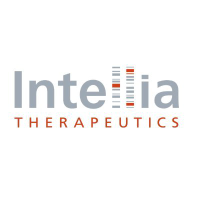What is $NTLA (+1,97 %) for a company and what is my investment case?
Intellia is the stock ticker for Intellia Therapeutics, a company focused on the application of CRISPR-Cas9 technology in medicine. [1]
What is CRISPR-Cas9 technology?
CRISPR-Cas9 technology is a revolutionary biotechnology tool that enables researchers to precisely alter the genetic makeup of living things, including humans.
CRISPR: This stands for "Clustered Regularly Interspaced Short Palindromic Repeats" and refers to repeated DNA sequences found in bacteria that function like a molecular memory. These sequences help bacteria defend themselves against attacks from viruses.
Cas9: This is a protein produced by bacteria that functions like molecular scissors. It can be inserted into DNA and specifically cut or modify certain genes.
Simply put, it is a tool for precisely modifying DNA, which is also very inexpensive.
[2]
Here is a video for a clear explanation.
https://www.youtube.com/watch?v=ZAz1GutJGbg
Now for the stock:
Intellia Therapeutics has the potential to revolutionize the way genetic diseases are treated. CRISPR-Cas9 allows scientists to target genes in the human genome to cure or prevent disease. This has far-reaching implications for medicine and the healthcare industry, as it offers the possibility of treating previously incurable diseases.
Intellia is a leader in gene editing with Crispr Therapeutics.
Intellia is working with Regeneron Pharmaceuticals and already has a few projects in the "EARLY-STAGE CLINICAL Phase".
What is an EARLY-STAGE CLINICAL phase and what is special about it?
The "EARLY-STAGE CLINICAL phase" refers to the beginning of a clinical trial in which a drug or therapy is tested in human subjects. This phase is usually divided into three main stages: Phase I, Phase II, and Phase III. Each of these phases has its own goals and focus.
The "EARLY-STAGE CLINICAL phase," which usually includes Phase I and Phase II, is the first clinical trials conducted in humans after promising results have been obtained in preclinical tests and animal studies. [3]
These are two experimental drugs that are in this phase.
NTLA-2001 Transthyretin (ATTR) Amyloidosis
Initial conclusions show "NTLA-2001 was associated with only mild adverse events and led to decreases in serum TTR protein concentrations through targeted knockout of TTR [4].
2 . NTLA-2002 Hereditary Angioedema
Overall, the interim results of the study show promising progress in the development of NTLA-2002 for the treatment of HAE. The drug appears to be effective in reducing plasma kallikrein levels and HAE attack rates and is well tolerated. The data are promising and suggest that NTLA-2002 has the potential to transform the treatment of HAE and provide patients with a functional cure. This is an important step toward the application of CRISPR technology to treat genetic diseases. [5]
So back to the question, what's special about it now?
There are only a few companies that are so far with research in this area and are already testing solutions "drugs" on people.
I think it is one of the great hopes of people affected by a rare disease to be completely cured.
Intellia is thus a pioneer of a new technology that could disrupt our understanding of the world.
In this regard, I can recommend the book "The Code Breaker". It shows the development , the chances and the potentials of CRISPR-Cas9.
The author addresses the following potentials:
- Cure of genetic diseases
- Cancer treatment
- Agricultural and food industry
In addition, ethical questions are openly posed and discussed.
I find the topic very exciting and see great potential there. How do you see the development and what do you think about the genetic modification of humans?
In my opinion, this topic will come up sooner or later. It remains to be seen how the development progresses.
I invest not only because I see the potential in Intellia, but also to stay up to date.
Sources:
[1] https://www.intelliatx.com/about/ (2023)
[2] https://www.mpg.de/11018867/crispr-cas9 (2023)
[3] https://toolbox.eupati.eu/resources/basics-of-early-clinical-development/ (2023)
[4] https://www.nejm.org/doi/full/10.1056/NEJMoa2107454
Disclaimer: I am definitely not an expert, so forgive me if some information is wrong and correct it in the comments.





